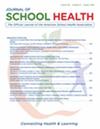A Pilot Evaluation of the Respect You Curriculum
Abstract
BACKGROUND
The objective of this study is to evaluate the Respect YOU program's impact on students' eating expectancies, body image satisfaction levels, self-efficacy, and knowledge. A total of 444 (intervention cohort n = 348, control cohort n = 96) underclassmen enrolled in health or physical education courses from 7 high schools in the Midwest participated in the study.
METHODS
A repeated measure research design was utilized to assess students' eating expectancies, body image satisfaction levels, self-efficacy, and knowledge. More specifically, paired t-tests were conducted to compare outcome measurements to evaluate the efficacy of the intervention.
RESULTS
Among the students who received the intervention (n = 348), there was a statistically significant change in scores for eating expectancies (Z = −14.403, p < .001), body image satisfaction levels (Z = −14.114, p < .001), social media self-efficacy (Z = 14.868, p < .001), and knowledge scales (Z = −16.100, p < .001) at post-intervention and compared to the control group.
CONCLUSIONS
Results indicate that the Respect YOU program was effective in improving body image scores, eating expectancies, self-esteem, and knowledge-related outcomes among students post-intervention. These results can be used to further develop educational programming to address body image concerns and disordered eating among adolescents.

 求助内容:
求助内容: 应助结果提醒方式:
应助结果提醒方式:


